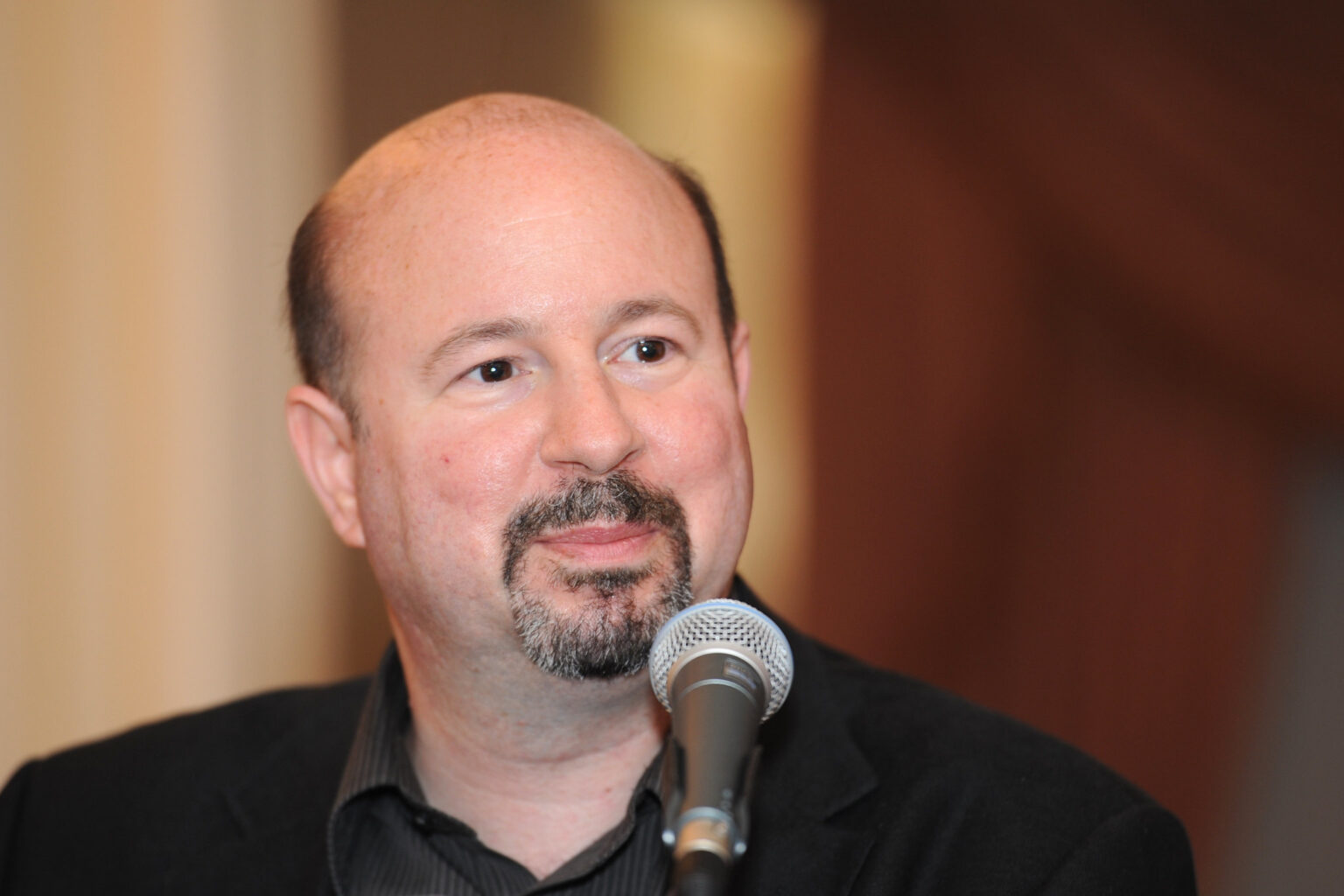Twelve years after he sued two climate deniers for defamation, climate scientist Michael Mann took the stand during the second week of the trial against them in Washington, D.C.
Mann’s testimony painted a picture of a respected and accomplished scientist and academic who has been deeply hurt, personally and professionally, by accusations of scientific deception.
In 2012, Rand Simberg and Mark Steyn publicly accused Mann, then a professor at Penn State University, of scientific misconduct and fraud.
Both Simberg — an adjunct scholar at the far-right think tank Competitive Enterprise Institute, which has a track record of platforming climate science deniers — and Steyn, a blogger and then-frequent guest on Fox News, challenged Mann’s climate research, and likened the situation to the sexual predator scandal that shook Penn State earlier that year. Steyn made his claims in the National Review, a prominent conservative magazine, and has continued to stand by them.
Separate investigations by Penn State and the National Science Foundation cleared Mann of any wrongdoing.
During the trial, Simberg’s defense attorney Victoria Weatherford has depicted Mann as an antagonistic, argumentative academic. Weatherford, a lawyer from the corporate law firm Baker Hostetler, stated in opening arguments that Mann was so disliked that “even his own family won’t come to court to defend him.”
In response, on Monday, Mann talked about his wife and daughter, his love of teaching, mentoring, and supporting other scientists, and his “nerdy” science tendencies.
Mann testified that his family had been devastated by Simberg’s comparison of Mann to Penn State’s Jerry Sandusky, a convicted sexual abuser, and were not appearing as witnesses because he wanted to shield his family from the allegations.
Mann’s voice shook as he described the impact on his daughter, stating that she was roughly the same age as Sandusky’s victims when Simberg and Steyn’s attacks were published.
The scientist also responded to questions from his lawyer about “Climategate,” a 2009 global media frenzy touched off by the release of hacked emails from climate scientists at the University of East Anglia, not long before that year’s United Nations climate conference in Copenhagen.
Climate deniers seized on a few phrases in messages from Mann and others, to claim that the science behind the famous “hockey stick” graph was fraudulent.
The graph, co-created by Mann, shows that while global average temperatures have been rising for the past 500 to 2,000 years, the rate of heating has sharply accelerated since the start of the industrial revolution in the West, and particularly during the 20th century. The science behind the hockey stick graph has been continuously upheld as accurate, and is among key findings that prove burning oil, coal, and methane gas is the primary driver of the climate crisis.
Mann and other scientists have steadily pointed out that climate deniers took the emails out of context — a point Mann emphasized on the stand, explaining that phrases Steyn and Simberg had interpreted as admissions of misconduct were colloquialisms used by professional scientists.
In one case, while Steyn and Simberg read malign intent into the use of the word “blacklist” in one email, Mann testified that scientists often use the word to refer to peer reviewers for scientific journals.
Even now, Mann testified, he is still contending with online harassment by climate deniers, including the comparisons between him and Sandusky initiated by Simberg and Steyn, who believe “Climategate” revealed scientific misconduct.
Social media not considered “part of the scientific process”
On Monday morning University of Massachusetts Amherst professor Raymond Bradley testified about Mann’s work in general and the hockey stick graph in particular. Bradley, Mann, and University of Arizona climatologist Malcolm K. Hughes worked together on the research behind the hockey stick graph, and first published about it in 1998 in the journal Nature.
Bradley testified that when Congress held hearings in 2010 pertaining to the hockey stick graph as well as the materials in the email hack, it was a way to “tangle us up in demands for documents,” and was “clearly aimed at making us three prominent scientists look as though we’d done something wrong.”
In cross-examining Bradley, the defense again attempted to create an image of Mann as an angry person.
Bradley acknowledged that in one message from the Climategate email hack, he had written that Mann sometimes came across as a “hostile character with a conspiratorial world view,” and advised his mentee to stop being rude online.
On the stand, Bradley said that this wasn’t an overall assessment of Mann’s character, however.
In afternoon testimony, Harvard science historian Naomi Oreskes testified that the public can have confidence in science because the scientific method of separating facts from fiction has stood the test of time.
“Science works not because of individual genius. It works collaboratively to try to answer tough questions,” Oreskes said on the stand.
Peer review of research findings by fellow scientists is essential to scientific method, Oreskes testified, while “social media is not considered part of the scientific process.”
“Science is not about individuals, it’s about process,” Oreskes testified. “Even if you don’t like a particular scientist, it doesn’t mean his science isn’t true.”
Oreskes, author of the books “Why Trust Science?” and “Merchants of Doubt,” is a leading authority on the origins of disinformation about science and public health.
Over the course of the trial, the defense has continued to try and demonize Mann. Steyn claimed on the stand this week that Mann had misled the public about being a Nobel Prize winner, calling it “the lie that won’t die.”
Guided by Fontaine, Mann set the record straight, testifying that he had received a certificate from the United Nations Intergovernmental Panel on Climate Change acknowledging his contributions towards the group’s receipt of the 2007 Nobel Peace Prize, which it shared with Al Gore.
Many other scientists on the IPCC have also said they won the 2007 award, Mann testified.
So far, courtroom observers have largely consisted of science deniers who follow Steyn’s blog. On Monday, former Minnesota GOP Rep. Michele Bachmann, who once claimed that global warming is “all voodoo” and “a hoax,” was in court to support Steyn as he testified.
Last year was the hottest on record, when Earth briefly crossed the critical threshold of 2º Celsius above historic temperature norms, among many other unprecedented impacts of climate change.
Bigger Implications
Mann’s defamation trial coincides with a new report released last week by the Center for Countering Digital Hate (CCDH), on how climate deniers are using new tactics to spread falsehoods about global warming.
While in 2012, climate deniers simply rejected the fact of climate change — as Steyn and Simberg did in their efforts to discredit Mann’s work — a “new denial” is on the rise, according to CCDH. Deniers are turning away from “rejection of anthropogenic climate change, to attacks on climate science and scientists, and using rhetoric seeking to undermine confidence in solutions to climate change,” the report states.
“New denial” approaches now make up 70 percent of all climate denial claims made on YouTube, according to the report, up from 35 percent six years ago.
Mann’s lawsuit also touches on whether or not climate deniers have a First Amendment right to publicly declare that climate scientists and scientific findings on climate change are fraudulent, despite the overwhelming and widely acknowledged evidence that they are correct.
Major fossil fuel producers are currently pursuing similar defenses in court, arguing that their statements on climate change constitute “political speech” protected by the First Amendment.
Stay tuned for DeSmog’s coverage as the trial continues through the first week of February.
Subscribe to our newsletter
Stay up to date with DeSmog news and alerts






